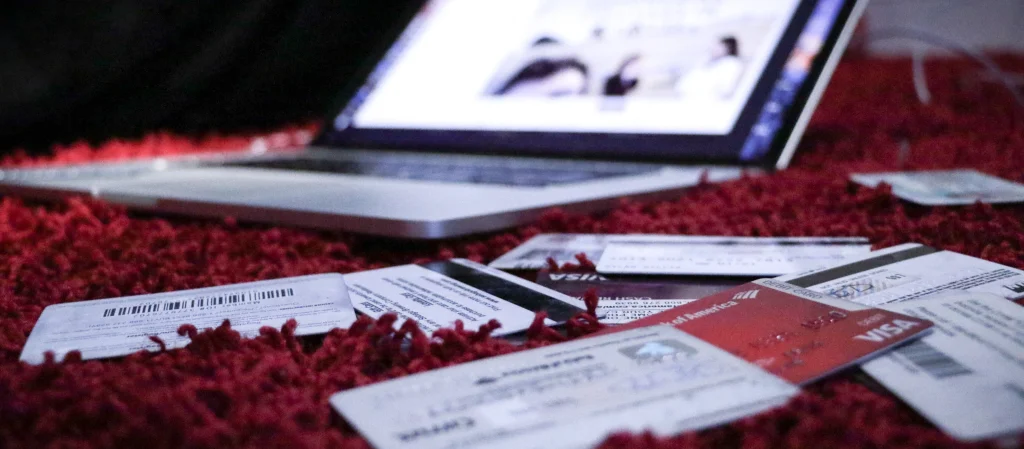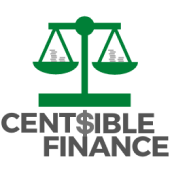
Back in November, I wrote an issue to you called “The Score That Really Matters.” And in that letter, I said the score that should matter most is not your credit score, but what I like to call your “financial wellness score,” instead. The only thing is, I didn’t know how true that was until a few months later… See, at the time, I wanted to drive the point home that the credit score is based on our relationship with borrowing money and paying it back—debt. And I was clear that it was no longer as important to me as it used to be. But what I learned this year convicts me in what I said back then…
What I Learned… You don’t actually need credit to get approved for a mortgage. Yes, that’s a fact. And if you’re surprised, so was I. I always thought that you needed to build up your credit—and do it early—if you wanted to get approved. But that’s just not true. Just to explain, your Fair Isaac Corporation (FICO) credit score is used by several potential lenders to help them determine whether to approve you for a home loan (and other types of loans), how much to approve you for, and at what interest rate. Usually, the higher your credit score is, the better your chances of getting approved are—and at a favorable interest rate. Now, when lenders run their inquiry on your score, all the hard work is done by algorithms. Everything is pretty straightforward, with just a few taps on the keyboard. So, there really isn’t as much for them to do when it comes to the decision-making. But there are lenders that will determine whether they should approve you for the loan the manual way. That means they will look at your financial background to figure out how dependable and stable you are—and how likely you are to pay them back. Instead of using a computer model and running a credit check on you, an actual person will just look at information such as, your employment history, income, and your track record for paying recurring bills (rent, phone, utilities, etc.). Whether a lender inquires about your credit score using a computer model or by sitting down and looking through your financial statements, they’re looking for the same thing: whether you can afford the mortgage you’re requesting, and whether you can pay them back on time. That’s it. What It Means If a lending company needs to know how likely you are to pay back what you’ll be borrowing, there are two options: Either check your credit score or have someone pore over your financial history. The main point here is that you don’t have to establish credit history just to make a down payment on a home. It surprised me to learn this because, up until recently, I never heard anything otherwise. And quite frankly, I’m sure it’s intentional. Just look around at the tallest buildings in the metropolitan area closest to where you live… Most of them, if not all, are banks and financial institutions that make their money off of people like us borrowing from them. So, what does this mean? Well, it means you don’t need to go into debt just to prove that you can handle a mortgage. Remember, your credit score has nothing to do with your financial wellness. It only shows how good you are at borrowing money from someone else and paying it back. Don’t be fooled. Even if you pay your credit card balance every month to avoid any interest, credit card companies are still taking advantage of you. A study by analytics company Dun & Bradstreet showed that we spend 12–18% more when we use a credit card, instead of cash. Even worse… Personal finance website ValuePenguin found that, people are sometimes willing to spend up to 83% more when using a credit card over cash. And the Federal Reserve Bank of Boston found that the average non-cash purchase is $112… as opposed to the average cash purchase being just $22. They’re using psychology to get us to spend more. What to Do If you’ve already established a credit history, I’m not sharing any of this information for any other reason but to inform. I have a credit history, too. And I’ll probably have one for a long time. I’m not saying to stop everything you’re doing. No one can predict what the future holds or what kind of rainy days may be ahead. So, if getting approved for some type of loan ends up becoming a reality in the long run, we’re only human. Sometimes, things beyond our control happen. That’s life. But knowing what I know now, I’ve made some changes to my spending habits. I used to use credit cards for everything I could. Now, I don’t. I just use them ONLY for purchases I know I have to make anyway. Not because I’m trying to take Discover, American Express, Visa, and Mastercard down. But because I know I’ve spent more by using their plastic money.
Try out what I’ve done yourself, if you want to see what kind of impact it’ll have on your habits.
If you’re thinking: Wouldn’t my score drop if I close these accounts or simply stop using my credit cards?…
Actually, most of the time, your score won’t change that much. And when I say “that much,” I mean, if you have a “Good” or “Excellent” credit score (or whatever other ratings they like to use), it’ll probably stay that way if you were to close the account(s) in question.
One other thing, too: It usually can take between seven and 10 years for an account to drop off your credit report… even if you close the account—good standing or bad.
Keep this in mind, if you’re planning on buying a home and you’re worried about how a change to your credit score would impact the loan approval. If you’re going through that process now, or you’re close to it, I understand your credit score is still highly useful for you at this moment.
But remember (especially if your score is low or you do not have an established credit history), you do not need a credit score to get approved for a loan, if you find a lender that will manually review your financial history and background. In the lending world, it’s called “manual underwriting.”
Now, if you’d like to stop using credit cards but can’t, because using credit cards is how you’re able to keep up with your bills every month… don’t be discouraged.
Most of us live this way. And it’s normal… But it doesn’t have to continue to be your normal…
I know I’ve mentioned this before. But just take a deep breath. Then, sit down and write down what you’re doing (how much you spend, owe, and make). Only thing left is to plan. All good things start with one, and you can read more about that right here.
There are some other letters I’ve written before with some recommendations and encouragement. So, feel free to check them out here, here, and here.
Bottom line: Do not mistake having a good credit score for being good at handling your personal finances.
An 850 (which is considered perfect credit, according to FICO) is not the same thing as being financially well. (Although it may be a good indication. Oftentimes, financial wellness and good credit are correlated, BUT NOT ALWAYS.)
While we’re on the path to financial freedom, we’re focused on working hard to save enough for emergencies, get out of debt, live within our means, and save for the future—all the things that embody financial wellness… So that we can be free to do the most important things of all: truly live life, love those around us, and give to each other.
Focus on that, and you’ll be fine.
In the meantime, don’t obsess over your credit score too much, if you don’t have to. Just protect it. The only reasons I’d recommend you still obsess over your score would be to make sure nothing changes if you’re in the middle of loan approval from a company that is relying on checking your credit, or to make sure your personal information isn’t being used by someone else to commit fraud.
Fraud and identity theft can be costly. So, stay on top of that by pulling your credit report at least once a year.
Usually, you’re allowed one free report each year from the three main credit bureaus, TransUnion, Equifax, and Experian. But at this moment, you can do that for free every week by visiting www.annualcreditreport.com.
Take advantage!
With gratitude,

Melody C. Kerr, MS
Writer, Editor, Financial Coach

